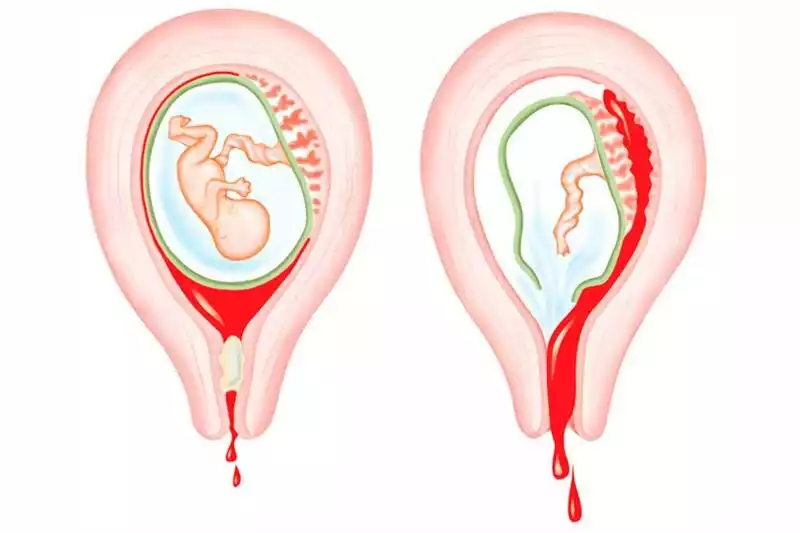
Tactics for Dealing with Incomplete Abortion after Medical Abortion
Introduction:
Medical Abortion, also known as the Abortion Pill, is a safe and effective method of terminating a pregnancy in its early stages. However, in some cases, the pregnancy may not wholly be expelled, resulting in an incomplete abortion. It is essential to address this situation promptly to avoid potential complications. In this article, we will discuss tactics for managing an incomplete abortion after a Medical Abortion while emphasizing the importance of seeking professional medical help.
Understanding Incomplete Abortion:
An incomplete abortion occurs when some of the pregnancy tissues remain in the uterus after a Medical Abortion. Symptoms of an incomplete abortion may include persistent bleeding, abdominal pain, and a continued positive pregnancy test. If you experience these symptoms following a Medical Abortion, it is crucial to consult a healthcare professional for a proper diagnosis and guidance.
Causes and Symptoms:
Incomplete abortion occurs when some pregnancy tissue remains in the uterus after a Medical Abortion procedure. Several factors can contribute to incomplete abortion, including:
-
Incomplete Expulsion:
Incomplete expulsion of pregnancy tissue during the Medical Abortion process, often due to factors such as gestational age, medication dosage, or individual response to the medications used. -
Uterine Abnormalities:
Uterine abnormalities or structural issues that may impede the complete expulsion of pregnancy tissue. -
Medication Failure:
Rare instances of medication failure, where the medications used in the Medical Abortion procedure are ineffective in inducing complete abortion.
Symptoms of incomplete abortion may include:
- Persistent or heavy vaginal bleeding;
- Abdominal or pelvic pain;
- Passing of clots or tissue;
- Fever or chills;
- Foul-smelling vaginal discharge.
Tactics for Managing Incomplete Abortion:
- Seek Medical Attention:
When experiencing symptoms of an incomplete abortion, it is vital to visit a healthcare provider. They will be able to evaluate your condition, confirm an incomplete abortion, and assess if any further treatment is necessary. Do not attempt to self-diagnose or self-manage an incomplete abortion without consulting a healthcare professional. - Medication Management:
In cases of incomplete abortion, healthcare providers may prescribe medications to help complete the abortion process. These medications may include prostaglandins or misoprostol, which stimulate uterine contractions to expel any remaining pregnancy tissues. Following the healthcare provider’s instructions carefully when taking such drugs is essential. - Surgical Intervention:
Occasionally, an incomplete abortion may require surgical intervention to remove the remaining pregnancy tissues. This procedure, called vacuum aspiration or dilation and curettage (D&C), is typically performed under local or general anesthesia. Your healthcare provider will determine if this intervention is necessary based on your situation. - Emotional Support:
Going through an incomplete abortion can be emotionally challenging. It is crucial to seek support from loved ones or professional counselors who can offer understanding, empathy, and emotional guidance during this time. Remember, one is expected to feel various emotions, and seeking support can help heal.
Prevention and Aftercare:
To minimize the risk of an incomplete abortion, it is essential to follow the prescribed Medical Abortion regimen precisely and attend any scheduled follow-up appointments. Stay close to your healthcare provider to ensure adequate support and guidance.
After completing treatment for an incomplete abortion, it is essential to prioritize self-care and physical recovery. This includes rest, avoiding strenuous activities, and following your healthcare provider’s instructions. Furthermore, avoid sexual intercourse or use barrier methods until your healthcare provider approves it.
Conclusion:
Experiencing an incomplete abortion after a Medical Abortion can be distressing, but it is crucial to prioritize your health and seek professional medical help immediately. Consulting a healthcare provider will ensure appropriate diagnosis and management of your condition, reducing the risk of complications.
Remember, this article provides general information and guidelines and should not replace the personalized advice of a healthcare professional.
Author
 Dr. Kopp Kallner. M.D. in Obstetrics & Gynecology, Columbia University Medical School.
Dr. Kopp Kallner. M.D. in Obstetrics & Gynecology, Columbia University Medical School.
Buy Abortion Pills

 Français
Français Deutsch
Deutsch Español
Español Русский
Русский